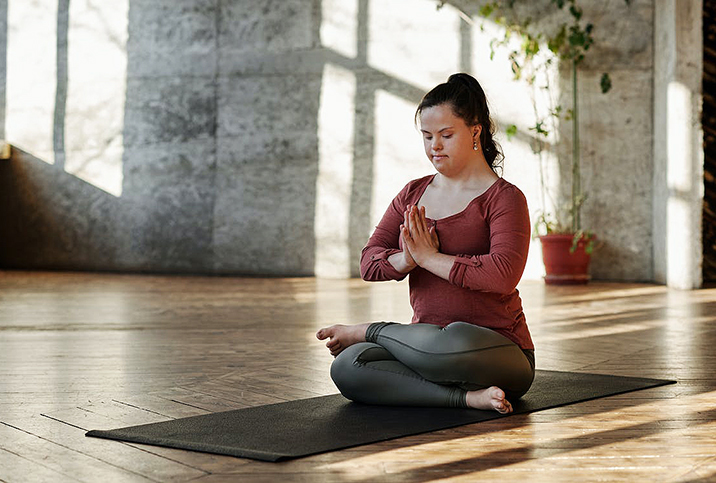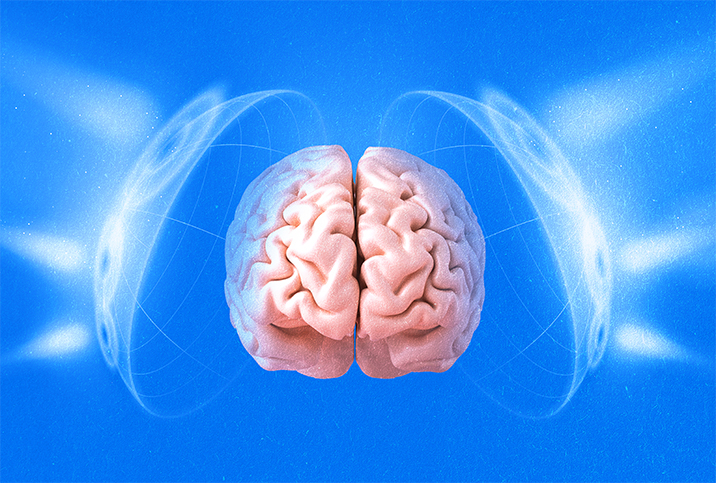How Does Your Pace of Life Affect Your Relationship?

We live in a fast-paced world. And it's seemingly getting faster every day.
From smartphone updates improving our personal communication to artificial intelligence (AI) generating content to medical breakthroughs keeping us healthy for longer. These milestones of technical innovation have increased the pace of our lives exponentially.
However, there may be a toll owed.
Often, we can feel overwhelmed and rushed in lifestyle roles that traditionally were regarded as stress-free. You may already be looking for ways to slow everything down before they affect your general well-being, your sexual health or your relationships.
Rather than deciding if moving fast is good or bad, it's better to understand how we are influenced by the pace of our environment.
'Stress and pace of life are intimately intertwined.'
A study conducted by noted American psychologist Robert Levine in 1999 researched the pace of life in 31 countries. The findings indicated a country's accelerated pace of life could lead to unhealthy behaviors such as smoking or a generally less helpful culture. Yet, within these fast-paced places, people reported having a greater sense of accomplishment and well-being. In slower-paced societies, however, there was less of a sensory overload and more time for social responsibilities but generally less urgency for timeliness.
It's important to recognize your own pace of life but you'll need to be aware of your personal stressors, which can affect your ability to navigate society's pace and demands. You may unknowingly be in conflict with the pace of your surroundings or the pace of others.
Are you feeling eustress or distress?
We all feel stress, but it's not always a warning sign for distress.
"Some kinds of stress can be very motivating and can drive us to necessary action, which is called eustress," said Harrison James Schmitt, M.A., a Ph.D. candidate in social psychology at Arizona University and cultural-existential psychology lab associate.
The excitement of meeting someone new, your first day at a new job or reaching a fitness goal are all eustress situations.
"I think being surrounded by a culture of a fast pace of life can contribute to this kind of eustress," he said. "Perhaps seeing others do and accomplish [many] things can be stressful but highly motivating."
Distress, the other aspect of stress, is accompanied by feelings of hopelessness, depression and anxiety.
"Some kinds of stress [such as] distress, are less helpful in that they are chronic and negatively impact our health and well-being," he added.
You might be experiencing a life-changing loss, trying to navigate a destructive relationship, or feeling the effects of a health or financial crisis.
"It's [also] important to think of how eustress can turn quite readily into distress if we find ourselves falling behind the pace of our culture or if we find a mismatch between our natural pace and that of our cultural surroundings," Schmitt said. "I think that it's important to understand this eustress/distress distinction as two sides of the same coin."
Your pace of life may be contributing to your stress
Too much stress, especially for a prolonged period of time, is not healthy and can lead to health issues such as loss of sexual desire, heart attacks, digestive disorders, depression, chronic anxiety and erectile dysfunction (ED).
"Stress and pace of life are intimately intertwined," Schmitt said. "At the individual level, people who feel more rushed, have a faster pace of life, and [those] who feel chronic time pressure tend to experience more stress on average.
"At the cultural level, it looks quite similar. Cities and countries that have faster paces of life on average, such as faster average walking speeds, also tend to have higher rates of stress-related health problems such as heart disease.
"Our culture in the United States very much encourages this faster, go, go, go pace of life, but this leads to more stress. At the same time though, if we try to do less and live more slowly, there's the potential [of] feeling guilty [that you're] not doing enough. The key is about finding the right balance."
Everything is connected to pace of life
"I grew up in a home that required a lot of, go go go," said Leigh Broschat, MS, LMT, NMT, NBCMT, neuromuscular massage therapist in Atlanta. "My mother was naturally full of energy. We began at 7 each morning and by 8 at night, we'd [finally] prepare for bed. As a result, I was often sick with sinus [issues], colds and [other] various illnesses.
"I discovered [later in life] I needed more sleep and breaks from a busy schedule. I found meditation in my 20s and began a yoga practice. Slowing down really helped me focus. Each of us needs to listen and learn to read the signals of our body, watch [our] energy levels, the foods we eat and how much exercise we get—preferably outside. Learning through trial and error is a great way to find activities that have a regenerative effect on our body, mind and spirit."
Schmitt noted the importance of finding balance in your pace of life, but also said it's important to find a balance between one's pace and the pace for folks important to us.
"If my pace of life doesn't match my wife's, that can lead to conflict," he added. "Different contexts demand different paces from us, whether we [are] getting drinks with friends or using the self-checkout at the grocery store. Taking cues from our surroundings and people in our lives means we can be flexible and hopefully avoid awkward conflicts that result from inconsistencies."
Broschat said major life events taught her to listen more deeply to her body and intuition.
"When I palpate a muscle group [during a massage session], this can wake a person to the needs of [certain areas] of the body," Broschat said. "In the same way, we can positively affect our thinking by lowering the muscular stress in the body, and we can positively affect our body by changing the thoughts we think. Everything is connected. I've come to believe the body is one of the best biofeedback machines available to us," she said.
Be well, be healthy, be happy
Our fast-paced lives can lead to a consistent sense of "urgency in our lives, [inhibiting] our ability to thrive and [appreciate] small joys of everyday life," Schmitt said.
Listen to your body and mind's "subtle signals" as Broschat suggested. Muscle tension, pain, negative thought patterns and anxiety are indications of being over-stressed and slowing your pace of life may be the healing solution.
Whatever your pace, your health, including your sexual health and intimate relationships, are key parts of your happiness and wellness.


















